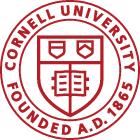- اخبار و مقالات
- Find usIDP AustraliaIDP BahrainIDP BangladeshIDP CambodiaIDP CanadaIDP ChinaIDP EgyptIDP GhanaIDP Hong KongIDP IndiaIDP IndonesiaIDP IranIDP JordanIDP KenyaIDP KoreaIDP KuwaitIDP LebanonIDP MalaysiaIDP MauritiusIDP Middle EastIDP NepalIDP New ZealandIDP NigeriaIDP OmanIDP PakistanIDP PhilippinesIDP Saudi ArabiaIDP SingaporeIDP Sri LankaIDP Taiwan, ChinaIDP ThailandIDP TurkeyIDP UAEIDP VietnamIDP Corporate
- Social
- فارسی
- Where we operate
- Courses
- Scholarships
- IELTS
- About IDP
- Student Essentials
- اخبار و مقالات
- Find us
- Find us
- Find nearest IDP offices
- IDP Australia
- IDP Bahrain
- IDP Bangladesh
- IDP Cambodia
- IDP Canada
- IDP China
- IDP Egypt
- IDP Ghana
- IDP Hong Kong
- IDP India
- IDP Indonesia
- IDP Iran
- IDP Jordan
- IDP Kenya
- IDP Korea
- IDP Kuwait
- IDP Lebanon
- IDP Malaysia
- IDP Mauritius
- IDP Middle East
- IDP Nepal
- IDP New Zealand
- IDP Nigeria
- IDP Oman
- IDP Pakistan
- IDP Philippines
- IDP Saudi Arabia
- IDP Singapore
- IDP Sri Lanka
- IDP Taiwan, China
- IDP Thailand
- IDP Turkey
- IDP UAE
- IDP Vietnam
- IDP Corporate
- Social
- LANGUAGE_SWITCHER
- آموزش IDP /
- کالج ها و دانشگاه ها /
- United States /
- Cornell University /
- Doctor of Philosophy in Bio...

Doctor of Philosophy in Biomedical Engineering - Biomechanics and Mechanobiology
At CORNELL UNIVERSITY

Location
United States
صلاحیت
Ph.D.
شهریه ها
USD24800
(2025)
مدت زمان
6 Semester(s)
پذیرش بعدی
26 August 2025
امتیاز ورود
7.0
آیلتسCOURSE_INFO
It is anticipated that students entering into the field of Biomedical Engineering will have received formal training in a recognized sub-discipline of engineering. Students obtain thorough training in biomedical engineering research. They also master the Ph.D. course work for a minor in a traditional engineering discipline and another minor in an area of the life sciences. Formal course work in the major includes a two-semester course in the Foundations of Biomedical Engineering, advanced BME analysis of biological systems, at least one other advanced course in bioengineering, and required seminars. Further, PhD students are expected to complete a six week immersion experience in medical research and clinical practice at Weill Medical College, as well as completing a graduate student teaching experience. M.S. students complete the Foundations in Biomedical Engineering course, two semesters of seminars, and typically four to five additional courses in engineering and the life sciences. These requirements are subject to revision.
Mechanical forces play critical regulatory roles in many physiological and disease processes. Cornell's program in Biomechanics and Mechanobiology includes collaborations between engineers, life scientists, veterinary, and medical professionals and continues to pioneer new fundamental and applied research. A research portfolio of top ranked engineering, veterinary, and medical schools has enabled Cornell to pursue unparalleled breadth and depth in biomechanical and mechanobiological inquiry. Our research topics extend across 10 orders of magnitude in length, from nanoscale mechanics in individual cells and extracellular matrices to whole organ function in large animal models. Cornell is also pushing the frontiers of mechanobiology by linking cell and molecular biology to tissue structure at the meso-scale, creating new theories and experimental test systems that are integrated with genetic and molecular tools to discover functional principles in biological structures with the long-term goal of improving human health.
- کمک هزینه تحصیلی
- دوره های کارآموزی
هزینه دوره ها یک شاخص است و باید به عنوان راهنما مورد استفاده قرار گیرد گرفتن اطلاعات دقیق عزینه
Duration: 6 Semester(s)
Fees: USD24800
| پذیرش | Location |
|---|---|
| Fall (August), 2025 | New York |
نیازمندی های ورود به Cornell University
three recommendations
GRE scores are not required or accepted
TOEFL iBT - 77 (Writing 20, Listening 15, Reading 20, Speaking 22)
IELTS - 7.0 or higher
ددلاین اپلیکیشن
تاریخ ددلاین مشخص نیست با یک مشاور IDP صحبت کنید برای اطلاعات بیشتر
Further information
If you aren't eligible for the above entry requirements, you might ant to explore pathway options at Cornell University. If you want to find out more, speak to our counsellors.
رتبه جهانی
20th / 1250
رتبه جهانیدانش اموزان ما چگونه فکر می کنند؟
هنوز نظری در مورد این موسسه دریافت نکرده ایم
پیشنهادات برای شما
- دکترا
- United States
- DEADLINE: 31 Jan 2025
- نوع کمک هزینه تحصیلی: Fee waiver/discount
Your action plan
گام 1
Shortlist your courses
Choose the best three courses you’re most likely to pursue.
گام 2
Check your eligibility
Get an instant in-principle offer for courses with the IDP FastLane tag.
گام 3
Apply through IDP Live
Fill out the form once and use it to apply to multiple courses.
اپلیکیشن فست لین IDP چگونه کار می کند؟
با "پذیرش مشروط" FastLane ظرف چند دقیقه می توانید در مورد پذیرفته شدن تان در دانشگاه با خبر شوید
یک موسسه یا دوره را انتخاب کنید
یک پروفایل آکادمیک ایجاد کنید
درخواست خود را برای "پیشنهاد مشروط" ارسال کنید
موسسه(ها) مورد نظر تان ظرف مدت چند دقیقه تصمیم خود را به شما اعلام خواهد کرد
برای درخواست پذیرش با کمک یک مشاور آماده شوید




